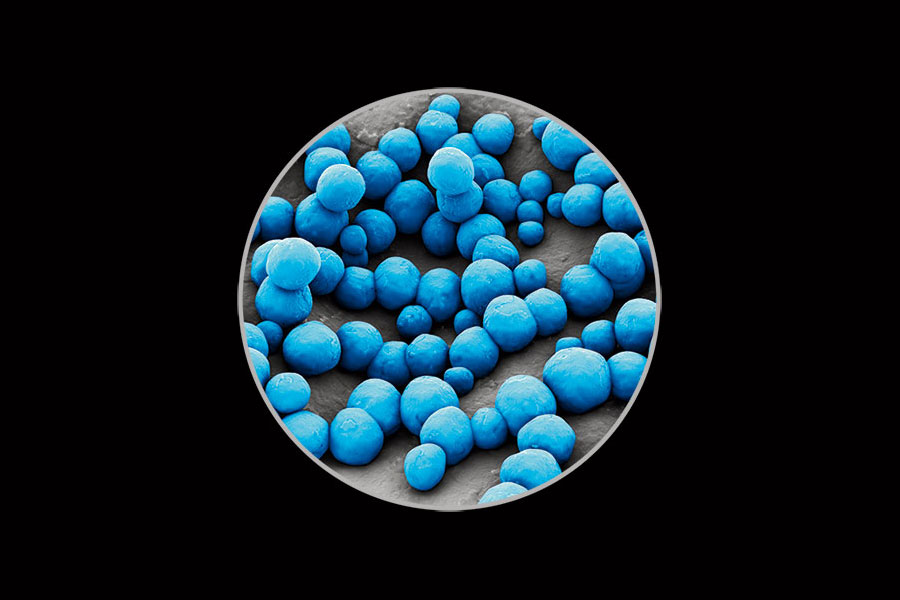Staphylococcus aureus, or S. aureus, has been around for more than 100 years. Over the years the increasing overuse and misuse of antibiotics to treat bacteria, including, S. aureus, has caused bacteria to become resistant to many common antibiotics used to treat infections. This is a tremendous concern in hospitals, medical centers and nursing homes–typical sites for HA-MRSA transmission. MRSA is a highly contagious and resistant S. aureus, or staph, infection most commonly spread by direct contact from contaminated wound drainage to another patient. Additional ways of hospital or medical facility transmission include through contaminated surfaces, medical equipment or implantable devices, inadequate/no hand washing by healthcare providers, and a patient’s compromised immune system making them susceptible to infection. An estimated 60% of all hospital infections are thought to be antibiotic resistant. In 2011 over 80,000 people acquired invasive MRSA infections with approximately 11,000 deaths as a direct result of these infections. (Centers for Disease Control and Prevention, 2014)
This month’s civil topic is “MRSA: Hospital or Health-Care Acquired Infection” Areas of discussion:
- MRSA transmission (10/6/14)
- Who’s At Risk? (10/13/14)
- Screening and Treatment (10/20/14)
- Legal Implications (10/27/14)
Note: To see all posts in this topic, click here
#MRSA, #Hosptialacquiredinfection











